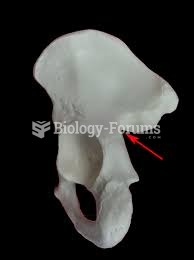|
|
|
People with high total cholesterol have about two times the risk for heart disease as people with ideal levels.
Since 1988, the CDC has reported a 99% reduction in bacterial meningitis caused by Haemophilus influenzae, due to the introduction of the vaccine against it.
People with alcoholism are at a much greater risk of malnutrition than are other people and usually exhibit low levels of most vitamins (especially folic acid). This is because alcohol often takes the place of 50% of their daily intake of calories, with little nutritional value contained in it.
By definition, when a medication is administered intravenously, its bioavailability is 100%.
On average, someone in the United States has a stroke about every 40 seconds. This is about 795,000 people per year.






